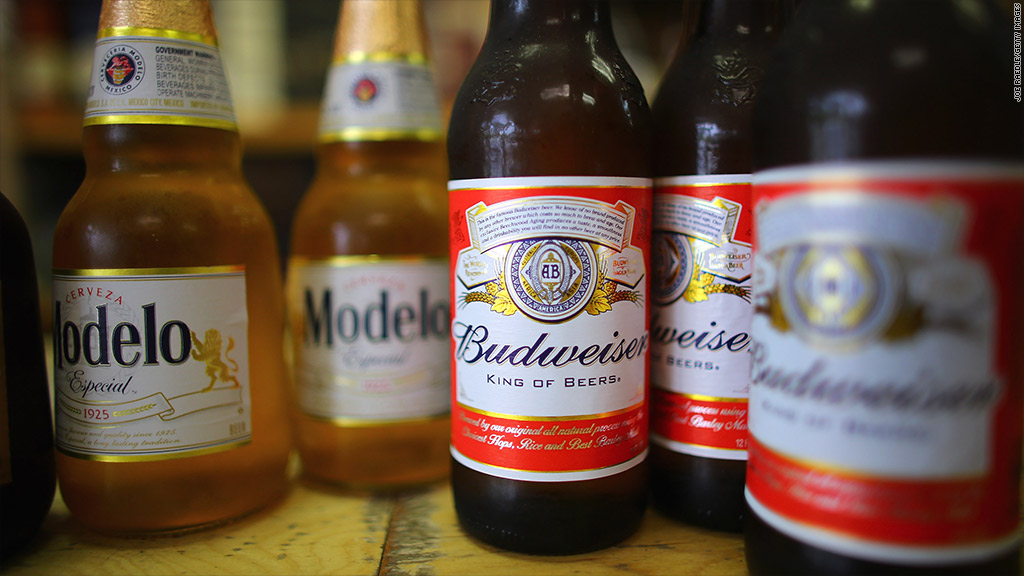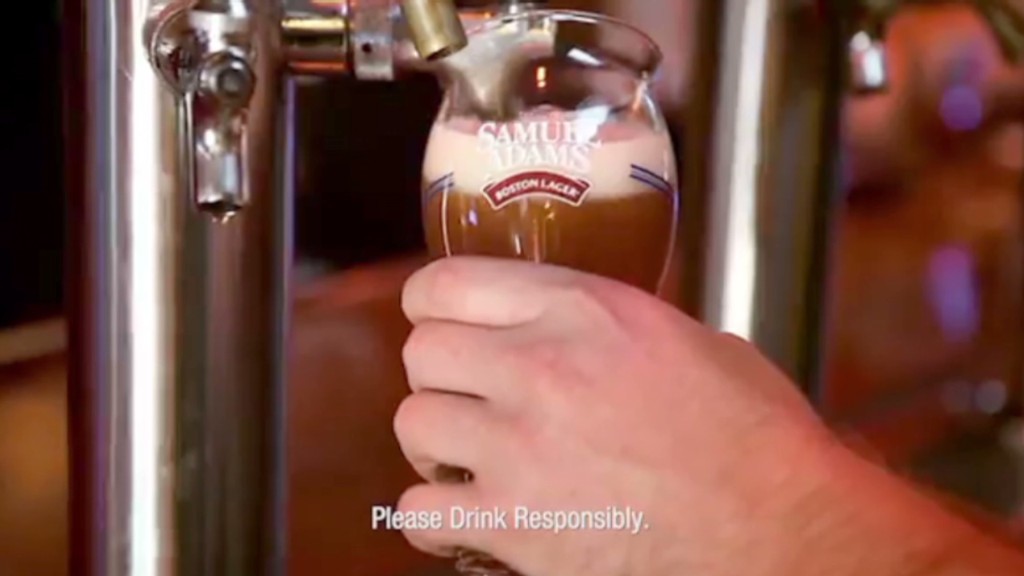
The U.S. government has filed a lawsuit to block the merger of two giant beer companies, saying the deal would limit competition and lead to higher prices for American consumers. But legal experts and industry analysts say Anheuser-Busch InBev (BUD) will eventually be successful in its bid to acquire all of Modelo Group, the Mexican brewer of Corona and other beers.
The Justice Department filed a complaint Thursday in federal court seeking to block AB InBev from acquiring full ownership of Modelo, arguing that the combined company would control about 46% of the $80 billion U.S. beer market.
According to the government, the merger would eliminate competition and allow AB InBev to raise prices.
AB InBev quickly shot back, saying in a statement that the government's claim "is inconsistent with the law, the facts and the reality of the market place." The company said it was "confident" in its position and would "vigorously" defend the merger in court.
Despite the posturing, there were reports Friday that talks between AB InBev and the Justice Department had resumed. The Justice Department declined to comment. AB InBev did not respond to requests for comment.
AB InBev first announced plans in June to buy the remaining shares of Modelo that it didn't already own for about $20 billion. Under the terms of the deal, Modelo would sell its 50% stake in a joint venture it had with Constellation Brands (STZ). The joint venture, called Crown, distributes Modelo beers in the United States.
The goal was to avoid antitrust issues by giving Constellation complete control of Crown. But the move did not satisfy the Justice Department, which called it "a façade of competition between AB InBev and its importer."
Shares of AB InBev have recovered somewhat after plunging on Thursday, when the lawsuit was announced. But investors seem to believe that Constellation has the most to lose. The company's stock has fallen more than 15% since Thursday.
While AB InBev has pledged to fight the case, many analysts expect it to make some concessions in order to win regulatory approval.
Specifically, AB InBev could give up the option it has, once every ten years, to buy the rights to distribute Modelo brands in the United States. AB InBev could also strengthen Constellation's competitiveness by selling it some of Modelo's facilities in Mexico.
Related: Big Beer's response to craft: If you can't beat 'em, join 'em
But the company is not known to back down from a fight, said Joe Thompson, president of the Independent Beverage Group, an industry organization based in Fayetteville, Ga.
"They didn't get to be the biggest brewer in the world by rolling over," he said.

Meanwhile, it remains to be seen whether the government will grant AB InBev any concessions.
Daniel Sokol, a professor specializing in antitrust law at University of Minnesota, said the government's complaint suggests the Justice Department believes it has a strong case.
The document outlines a strategy the Justice Department has used to win antitrust cases in the past, including the use of internal company documents to "skewer executives," he said.
"What wins in court is when you have bad documents and a story to tell a judge," he said. "They seem to have nailed that."
The Justice Department used a similar strategy in its case against the proposed merger of AT&T (T) and T-Moble last year, as well as the victory it scored against H&R Bock (HRB) and TaxAct in 2011, Sokol said.
In any event, the merger will probably be tied up in court for some time, notes Ken Perkins, an analyst at Morningstar.
"It is difficult to assess the probabilities of the different outcomes of this situation with a high level confidence at this point, but a lengthy fight in federal court appears likely," he said.
The deal includes a $650 million break-up fee that AB InBev would have to pay Modelo, but the cost of a drawn-out court battle could also add up quickly for the companies.
Nonetheless, analysts are confident that AB InBev will eventually prevail.
"I think the deal will still go through," said Thompson. "It makes too much sense."


